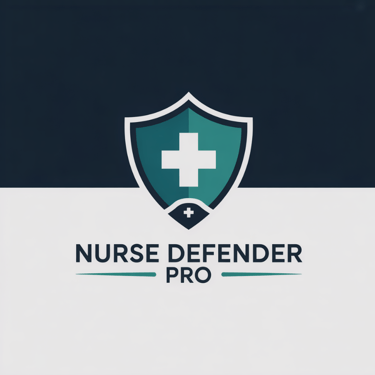How to Return to Nursing Practice After Suspension: Remediation, Skills Refreshers, and Getting Back in the Game
Returning to nursing after suspension or years away can feel overwhelming—but it’s absolutely possible. This guide explains how to navigate Board of Nursing requirements, choose remediation programs, and use nursing student-level resources to rebuild your skills and confidence. Learn practical steps to meet reinstatement requirements, refresh your clinical knowledge, and prove your readiness to deliver safe, high-quality care. Whether you’re facing license reinstatement or just feeling rusty after time away, this post will help you plan your return the right way.
7/11/20256 min read


How to Return to Nursing Practice After Suspension: Remediation, Skills Refreshers, and Getting Back in the Game
Losing your license or stepping away from the floor for any significant time can feel devastating.
It’s not just your job—it’s your identity, your purpose, and your commitment to caring for others. So when you’re ready to come back, you want to do it right.
But here’s the truth: Boards of Nursing don’t want you to fail. Their role is to protect the public, not to punish you forever. That’s why remediation, refresher courses, and reentry programs exist.
If you’ve had your license suspended, are working through reinstatement, or have simply been away from bedside nursing for years, you’ll often be asked—or required—to complete some form of nursing remediation plan.
It’s not just a hoop to jump through. It’s a path to rebuild your competence and confidence so you can practice safely again. This guide is here to help you understand what to expect, what’s required, and why using even nursing student-level resources is a smart, professional strategy.
Why Remediation Matters
Let’s start with the big question:
Why do I even need remediation if I was already a nurse?
Good question.
Remediation isn’t about punishing you for your past. It’s about ensuring that when you step back into patient care, you can do so safely, confidently, and in line with today’s best practices.
Healthcare changes fast.
New evidence-based guidelines.
New documentation requirements.
New technologies.
Shifts in patient expectations and regulatory oversight.
Even a few years away from the floor can leave you feeling rusty—especially in high-acuity environments.
And if your license was suspended for clinical errors, professional boundaries, or substance use issues, remediation shows the Board you’ve done the work to address root causes and prevent future harm.
Boards of Nursing and Remediation Requirements
Most Boards of Nursing have clear guidelines about reinstating a suspended license. Typically, they require:
A completed application for reinstatement
Payment of fees
Disclosure of all disciplinary actions and legal issues
A remediation plan (often Board-approved)
Proof of continuing education
Sometimes supervision or a probationary period
If you’ve been out of practice for many years—even without discipline—they may still require a formal refresher course to ensure you’re safe to return. This is not personal. It’s about protecting patients.
What is Nursing Remediation, Exactly?
Nursing remediation is any structured process designed to rebuild your competence and readiness to practice. It can include:
Didactic review (theory refreshers)
Clinical skills labs or simulations
Supervised clinical practice hours
Written assignments or reflections
Counseling or substance use monitoring (if applicable)
Continuing education hours in relevant topics
Remediation plans are often customized to address why you left practice.
Example:
If you made documentation errors → Focused charting and compliance modules.
If you had substance use issues → Monitoring programs and ethics courses.
If you’ve been away 10+ years → Comprehensive refresher with supervised clinical hours.
Why It’s Okay (and Smart) to Use Nursing Student Resources
One of the best strategies? Leverage nursing student-level resources as part of your remediation.
That might sound counterintuitive.
You’re already a nurse. Why go back to “student” material?
Because these resources are designed to:
Break down complex topics clearly
Cover systems review thoroughly
Teach clinical reasoning step by step
Provide up-to-date, evidence-based guidelines
Help you rebuild confidence in areas you haven’t used in years
Think of it this way:
If you’re rehabbing an injury after months in a cast, you don’t go straight back to powerlifting. You start with basics. Range of motion. Light weights. Form.
Remediation is the same.
You start with foundational knowledge to rebuild safe practice.
What Nursing Student Sites and Courses Can Offer
Systems Review: Cardiovascular, respiratory, neuro—all in digestible, focused modules.
Assessment Skills: Refresher on head-to-toe assessments, focused assessments, recognizing early warning signs.
Pharmacology Updates: New meds, black box warnings, administration protocols.
Documentation Best Practices: Legal charting standards, SOAP/PIE formats, avoiding common errors.
Ethical and Legal Considerations: Professional boundaries, informed consent, patient rights.
Test Prep Quizzes: To identify gaps in knowledge and strengthen recall.
These aren’t just for students. They’re for any nurse committed to safe practice.
Nurse Refresher Courses and Reentry Programs
Many Boards maintain lists of approved refresher courses or nurse reentry programs. These often include:
Online didactic content
Skills labs at local colleges or hospitals
Precepted clinical rotations
CE credits that satisfy Board requirements
Examples of what you’ll find in these programs:
Infection control updates (COVID-19 protocols, emerging diseases)
High-acuity assessment and intervention skills
New documentation systems (EMR training)
Patient-centered communication techniques
Review of legal and ethical responsibilities
Don’t Skip the Self-Assessment
Before you choose a program, take time to honestly assess where you feel rusty.
Do you remember medication safety rules like the back of your hand?
Can you confidently prioritize patient care in an emergency?
Are you up to date on your state’s scope of practice rules?
Have you used modern EMRs or telehealth systems?
How strong is your clinical judgment after time away?
Remediation isn’t one-size-fits-all.
Identify your personal learning needs so you can choose resources that truly help.
Example Nursing Remediation Plan
Here’s what a typical plan might look like for a nurse returning after suspension or a long break:
Board-Approved Course
80 hours didactic content
40 hours supervised clinical practice
Targeted CE Hours
Ethics and professional boundaries
Documentation and legal issues
Pharmacology updates
Simulation Lab Practice
High-acuity scenarios
Communication drills
Personal Reflection Assignment
Written explanation of past errors
Action plan for safe practice
Monitoring/Support (if needed)
Random drug testing
Support group participation
Using Online Nursing Student Sites as Part of Your Plan
You don’t always need a formal college program to get started.
Sites with nursing student content can help you review systems at your own pace. A really good one that is free is called NursePronto, it is one of top runners on the market for nursing students.
Affordable (or free) online courses can fill knowledge gaps.
Flashcards and quizzes can refresh pharmacology and assessment skills.
Study guides and cheat sheets help you organize information logically.
These tools aren’t "too basic." They’re accessible, flexible, and effective.
For many nurses, they’re the first step in rebuilding confidence before tackling supervised practice.
Key Steps to Returning to Practice
Talk to Your Board
Check your state’s requirements for reinstating a license after suspension or time away. Get clarity on approved programs and deadlines.
Choose a Remediation Program
Look for Board-approved refresher courses or accredited CE providers.
Supplement with Student Resources
Use nursing student sites to review systems, pharmacology, documentation, and more.
Practice Clinical Reasoning
Case studies and simulations help you sharpen decision-making skills.
Build a Support System
Reach out to colleagues, mentors, or support groups who understand your journey.
Prepare for Disclosure
If your Board requires an explanation of past issues, be ready to share a professional, honest, reflective narrative.
Overcoming the Stigma
Let’s be real: returning after a license suspension or a long gap carries stigma.
You might worry:
“Will employers trust me again?”
“Will people think less of me?”
“Am I even good enough to do this anymore?”
It’s okay to acknowledge those fears.
But remember: You’re not defined by your mistakes or your time away.
What matters is:
Taking responsibility
Doing the work to return safely
Showing patients you care enough to practice at the highest standard
Remediation isn’t shameful. It’s ethical. It’s professional.
Need Help Navigating This Process?
At Nurse Defender, we know returning to nursing practice after suspension can be overwhelming.
We help nurses:
Understand Board of Nursing requirements
Build strong remediation plans
Write clear, effective disclosure statements
Choose CE and refresher courses
Prepare for Board hearings
Protect their licenses going forward
If you’re committed to coming back stronger, we’re here to help.
Contact Us Today to get the guidance and support you need to defend your license—and your future.
How You Should Use a Nursing Learning Resource to Rebuild Confidence and Competence
NursePronto.com isn’t just for nursing students—it’s a valuable resource for licensed nurses preparing to return to practice after time away or license suspension. Whether you’re refreshing your skills after years off the floor, meeting Board remediation requirements, or rebuilding confidence following disciplinary action, Nurse Pronto offers clear, accessible, and up-to-date systems reviews, clinical skills refreshers, and essential knowledge checks designed to help any nurse get safely and competently back into practice. It’s a smart, practical way to lay a strong foundation for reentry—because high-quality care starts with being prepared.
Final Thoughts
If you’re ready to return to nursing after suspension, know this:
You can do it.
Boards don’t want to block you forever. They want you to be ready.
Embrace remediation as a chance to learn and grow.
Use nursing student resources to build your foundation.
Seek help when you need it.
Show your commitment to safe, ethical practice.
Your patients deserve your best. You deserve the chance to give it to them—again.
